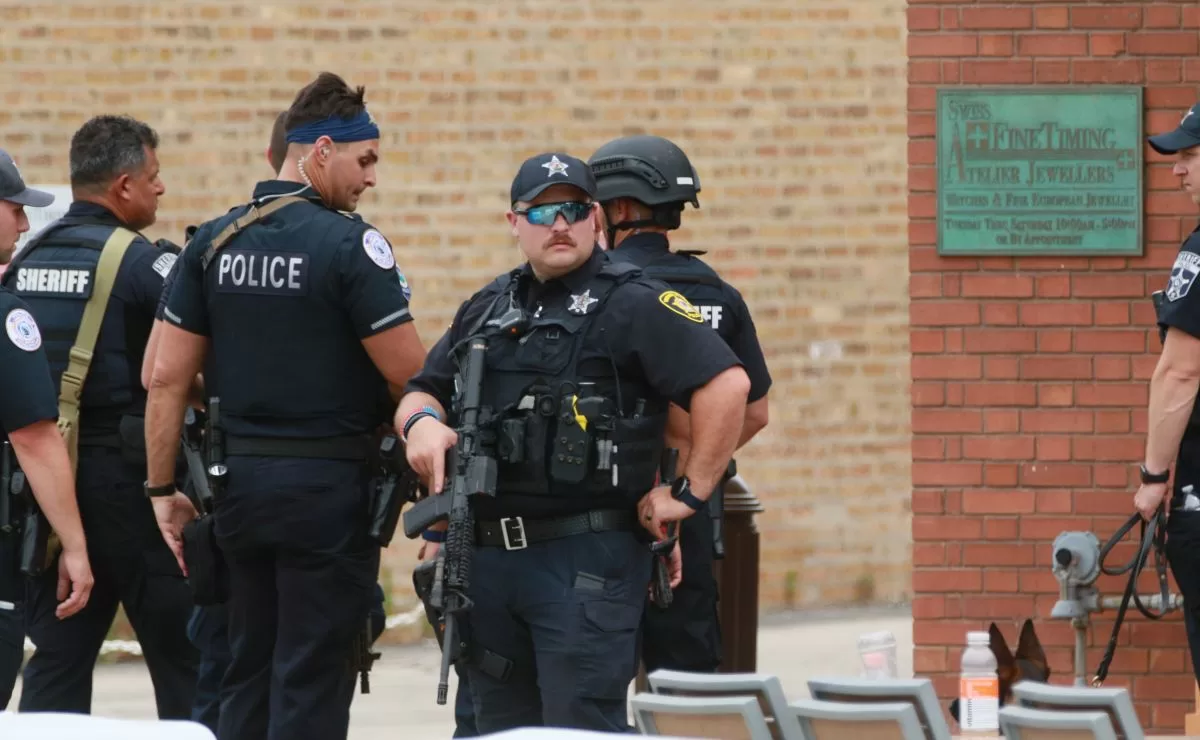More than six years after the independence movement in Catalonia left Spain on the verge of breaking up, Congress on Thursday gave its final approval to a controversial amnesty law for hundreds of secessionists in the hope of closing the traumatic episode.
The law was supported by the left-wing coalition government, two Catalan separatist parties and other smaller parties, which totaled 177 votes, compared to 172 against the deputies of the conservative Popular Party and the far-right Vox.
The amnesty could benefit former Catalan regional president Carles Puigdemont, who is a fugitive from Spanish justice after fleeing to Belgium after the failed independence bid he led in October 2017. It should also affect hundreds of others, including former government officials in Barcelona. , ordinary citizens who participated in the secession attempt or in the protests, and some police officers involved in the repression of the illegalized consultation held by the Puigdemont government.
The approval of the amnesty law, however, does not immediately solve the legal problems of the separatists.
The text validated in Congress is likely to face judicial challenges and be reviewed by higher courts. Furthermore, its application will be carried out on a case-by-case basis. Some experts who question its constitutionality maintain that it would create inequality among Spanish citizens by favoring some over others.
Since coming to power in 2018, the president of the government, Pedro Sánchez, has focused on reducing tensions in the northwestern region of Catalonia and defends that the amnesty is key to completing that process.
But the amnesty law was also a political necessity for Sánchez, who agreed to propose it when he needed the support of separatist legislators in Madrid to form a government again in November, after an election that did not produce a clear winner in July. The lower house of Parliament approved the text in March, but the Senate — controlled by the right — rejected it at the beginning of the month, causing it to return to Congress.
Tensions in the lower house of Parliament were high during the final debate on the law and the vote, in which each deputy took turns expressing the meaning of their vote. Sánchez’s “yes” was met with cries of “Traitor!” .
“In politics, as in life, forgiveness is more powerful than resentment,” the president wrote on the social network X after the vote. “Today Spain is more prosperous and more united than in 2017. Coexistence is making its way.”
The anger took over the plenary session for a few moments when the beginning of the intervention of the socialists’ spokesperson, Artemio Rallo, was interrupted by several Vox deputies, who stood up in their seats and, pointing at him, shouted “sold out” several times. and “corrupt.”
“Although it is difficult and painful for them to hear, Europe, Spain and Catalonia have said ‘yes’ to the amnesty,” Rallo responded, referring to the support of the Council of Europe, a non-EU institution that promotes human rights, to the law.
Although the amnesty is a popular measure in Catalonia, the Popular Party and Vox have called for protests against it in Madrid and other cities in the country. In Sánchez’s Socialist Party there have also been voices critical of the initiative.
Popular Party leader Alberto Núñez Feijóo tried to shame the Socialists for giving in to the amnesty in exchange for the “seven votes” from representatives of Puigdemont’s party that he needed for the investiture. Furthermore, he warned Sánchez that, once the text is approved, he should expect few favors from the independentistas, whose support is key to keeping his fragile government in power.
“What the Congress of Deputies is going to make effective today is an exchange of power in exchange for privileges, it is an exchange of power in exchange for impunity,” Feijóo stated.
The long legislative path to the amnesty concludes on the eve of the elections to the European Parliament, which will be held between June 6 and 9, and with support for the separatist cause fading in Catalonia.
The amnesty covers crimes related to the Catalan independence movement committed between November 2011 and November 2023. The government estimates that several hundred people could benefit from it, while the separatists raise the figure to thousands.
After Sánchez pardoned nine secessionist leaders who were in prison in 2021, it does not appear that there are more independence supporters behind bars. But many face possible jail terms, trials, fines or bans from running for public office.
The parliamentary spokespersons for the Catalan separatist parties had no words of gratitude for Sánchez and his government, but they did praise his followers and the former leaders who went to prison, in addition to those who left the country like Puigdemont.
“Today is a historic day. Today is not forgiven, but rather won,” said Míriam Nogueras, from Junts, Puigdemont’s party.
They also insisted that their next objective will be to try to force Sánchez to go back on his promise not to allow an authorized independence referendum to be held.
Gabriel Rufián, a deputy for Esquerra Republicana de Catalunya, told lawmakers: “Next stop: referendum.”
___
We invite you to visit us on the new NY1 Noticias channel on WhatsApp. There you will find the most relevant news about what is happening in New York, as well as other coverage about the rest of the country, Latin America and the world. click in this link to access the channel. We thank you in advance if you become one of our followers and express your reaction to what we publish with an emoji.






